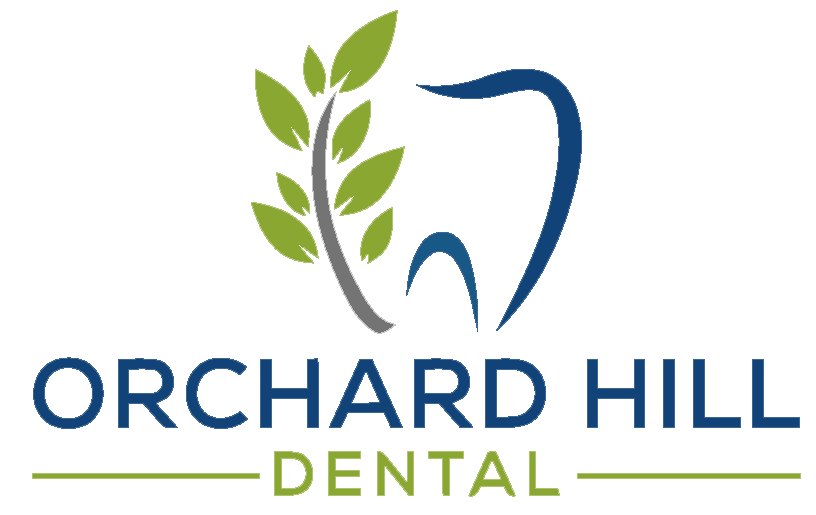Do you have missing teeth? Do you want a fuller and more balanced smile? At Orchard Hill Dental we offer restorative options for missing teeth that can improve the form and function of teeth. Patients can receive comfortable and high-quality treatment in our Hendersonville, NC office.
If you want to schedule an appointment with Dr. Jessica Christy, you can call (828) 247-7001 or request a consultation online.

Restorative Treatment Options for Missing Teeth at Orchard Hill Dental
Before choosing treatment, your dentist in Hendersonville, NC will assess your oral health, taking your budget, and personal dental goals into consideration. Depending on how many missing teeth you have, as well as how much remaining tooth structure is left, she will choose one of these solutions:
Dental Implants: Single missing teeth or whole arches of teeth can be replaced utilizing dental implants. Dental implants consist of a titanium post which is inserted into the jawbone. After a period of 3 to 6 months, a permanent abutment and dental crown are added for a permanent restoration.
Dental Bridges: One or more teeth can be replaced with dental bridges. This option can be removable or secured in place with dental implants. Dental bridges can also utilize surrounding natural teeth to secure and replace consecutive missing teeth. Further tooth loss can be prevented with this solution.
Dentures and Partials: Multiple teeth or the upper and lower arches of teeth can be replaced with dentures or partial dentures. Like dental bridges, dentures can be removable or secured by dental implants. Many patients also find that it is easier to bite and chew food with these dental restorations.
Why Should You Replace Missing Teeth?
Replacing missing teeth helps to support long-term oral health and improves the appearance of your smile. Without the root structure of the missing tooth, the stability of the entire smile becomes compromised. Teeth are more likely to shift, gums are susceptible to infection, and over time the jaw bone begins to deteriorate.
Whether you are missing one tooth or a full set of teeth, replacing your missing teeth is imperative to help support the long-term function of the bite and oral health.
Missing teeth can increase the risk of:
- Additional tooth loss
- Gum disease
- Speech issues
- Bone loss
- Facial sagging
- Gum recession
- Shifting teeth
Missing Teeth FAQs
What are my options if I have missing teeth?
Patients with missing teeth have many options for replacement. Dental implants are the most common because they are very reliable and look and feel like a natural tooth. Dental implants are also a great option because they can be used to replace single, multiple, and teeth in different areas.
Are missing teeth unhealthy?
Missing teeth are one of the leading causes of bone loss, which can cause other issues in the body. Missing teeth can also lead to tooth misalignment, gum disease, and tooth decay.
Is it necessary to replace missing teeth?
It is not necessary however it is highly recommended that patients replace missing teeth. Replacing crooked teeth will improve the function of a patient’s mouth, and will protect against further damage.
How common is it to have missing teeth?
About o 20% of adults have at least one missing teeth at birth, making hypodontia one of the most prevalent developing oral health problems. Most people only have one or two lost permanent teeth, and only a handful have more than six missing.
What is the safest way to replace missing teeth?
The preferred method for replacing missing teeth is dental implants. The root of the tooth is replaced with a metal post, and a synthetic tooth that feels and looks natural is used to fill the gap. Due to the implant’s need to merge with the jawbone, the process is lengthy and requires extra healing time.
Which process is longer to replace a missing tooth?
An implant prevents the loss of your jawbone since it replaces the tooth’s natural root. Dental implants stay longer and are more durable than other tooth replacement choices, however they do tend to be more expensive.
